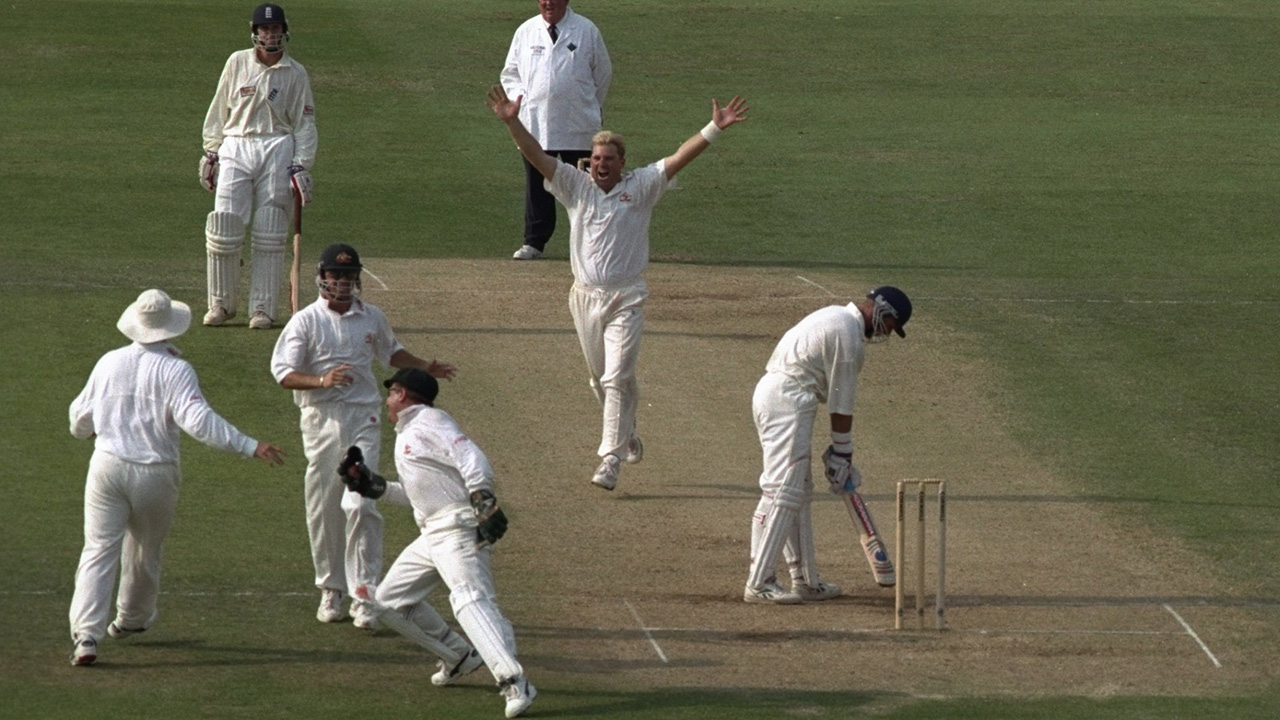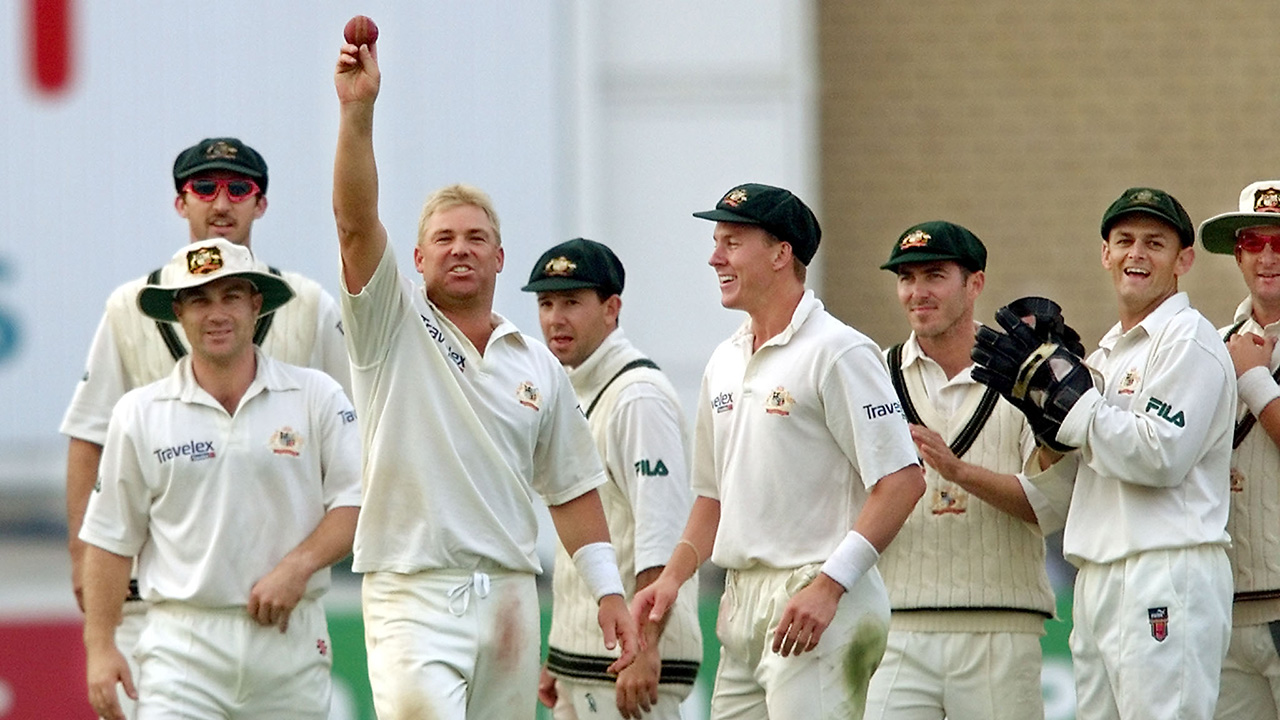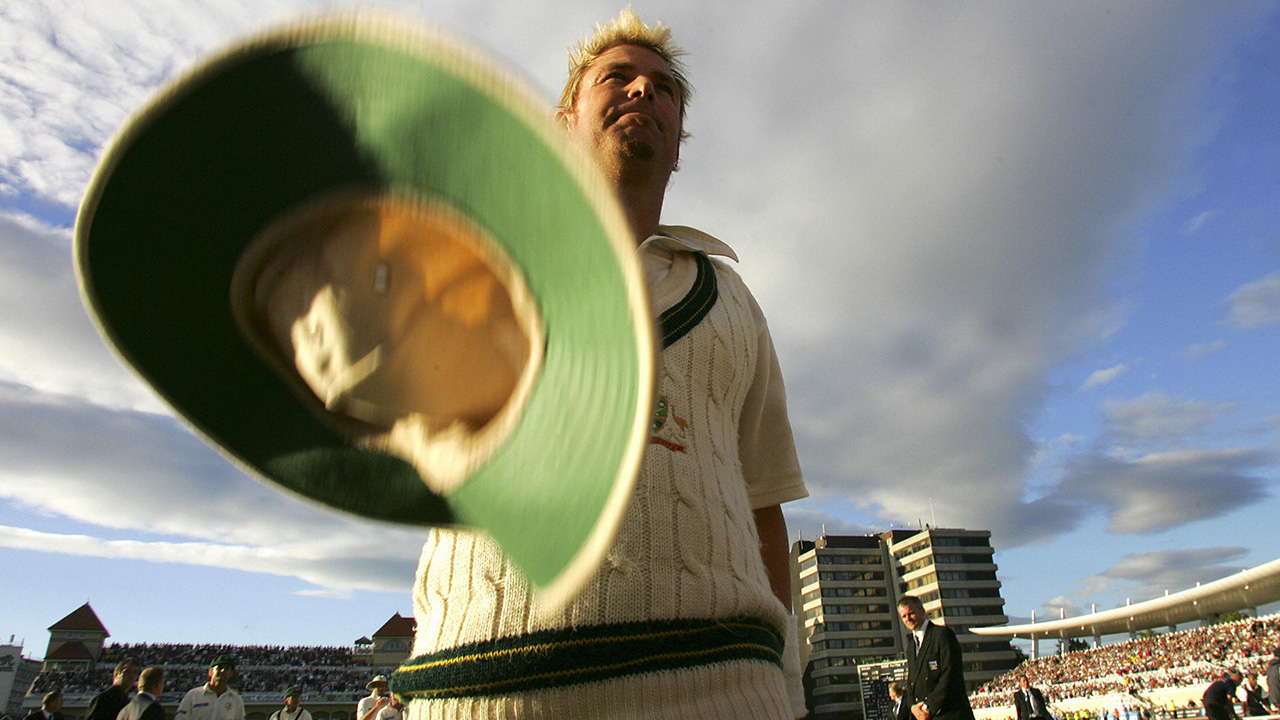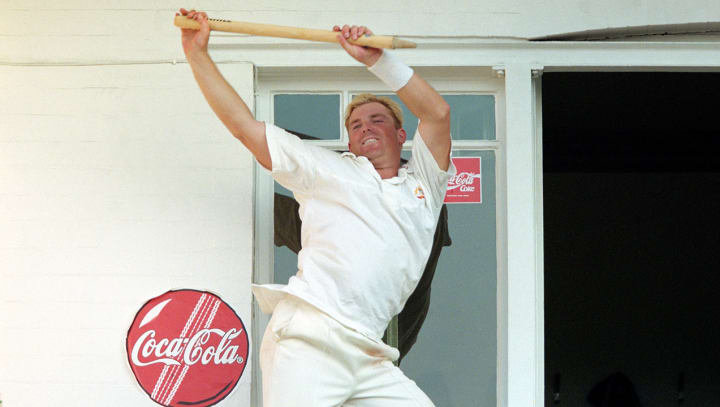Shane Warne was a headline-maker, tabloid favourite and one of our sport’s most remarkable characters.
But before the notoriety came the cricket. And he was, quite simply, an all-time great.
The architect of leg-spin’s revival, a spiritual leader of Australia’s all-conquering Test side and a devotee of the English county circuit, Warne has left an indelible mark on the global cricketing scene – with many of his most celebrated moments coming on our turf.

Warne’s first international appearance at Trent Bridge came in the drawn third Ashes Test of 1993.
This was one month after the delivery which would come to be known, indisputably, as the Ball of the Century, with the young leg-spinner having taken four wickets in each of the first four England innings of the series.
He would secure six further scalps in Nottingham, with his 35 runs at number ten typifying the all-round abilities of a man who would go on to score the most runs of any Test cricketer not to make a century.
And he would claim seven wickets in a crushing victory in 1997 as Australia moved into an unassailable position in the series.
Ian Healy may have been named Man of the Match, but it was Warne’s name which would become inextricably linked with the contest.
First came a trademark performance with the ball, carving through England’s top order with a six-over stint which would end the doughty resistance of Atherton, Stewart and Hussain.
Then came his iconic, champagne-drenched cavorting on the dressing room balcony, stump held aloft between both hands.

In 2000, Warne was named as one of Wisden's five greatest cricketers of the 20th Century. But he would scale still greater peaks in the years to come.
The 2001 Ashes would see him claim his best analysis at Trent Bridge, routing the hosts in tandem with Jason Gillespie to finish with figures of 6/33.
Whether it was flight, guile, or sheer ‘fizz’ (legend has it the ball’s revolutions were audible as Warne’s delivery approached the batsman), it was simply too good for the English quartet of Atherton, Trescothick, Ramprakash and Stewart.
For the second series in succession, the Urn was secured at Trent Bridge, with Warne deservedly taking the plaudits as Man of the Match.
Four summers later, a reinvigorated England arrived in Nottingham with lofty ambitions of their own.
And with a mere 129 runs required in the fourth innings to keep the most dramatic of series alive, Michael Vaughan’s men had placed themselves in an enviable position.
By now, however, Warne’s reputation preceded him – and nerves were visibly apparent as the fired-up figurehead removed his panama hat.
For a man whose sides so often led from the front, the leg-spinner rarely seemed more potent than when his back was against the wall.
With his first ball, he snapped up Marcus Trescothick. Precisely six deliveries later, Michael Vaughan would follow, before Andrew Strauss and Geraint Jones found themselves deceived too.
Steve Harmison has since spoken of the awe he felt while watching Warne bowl from the non-striker’s end – and the rangy quick was no doubt quaking in his pads as Matthew Hoggard and Ashley Giles attempted to marshal their side home.
Giles would see the Three Lions over the line, clipping Warne through midwicket to secure one of the greatest wins in Test history – a match in which the vanquished played as crucial a role as the victors.

Warne would twirl away for seven seasons at Hampshire too, transforming the south coast outfit into title contenders with his ability, experience and sheer force of personality.
For those in the Nottinghamshire dressing room, Warne was a feared yet worthy adversary as Mick Newell’s side pursued trophy ambitions of their own.
And Stephen Fleming was no doubt relieved to have secured the County Championship pennant in the fixture immediately before Notts’ trip to the Rose Bowl, with Warne’s charges ultimately dominating the new champions during the course of a three-day victory.
It seemed that, whether in front of a six-figure crowd at the MCG or wheeling away on the South Coast – and no matter the indiscretions that may have dogged him at the time – Warne retained his ebullient enthusiasm for the game.
A raconteur, a bon viveur, and a master of his craft. He will be most sorely missed.
